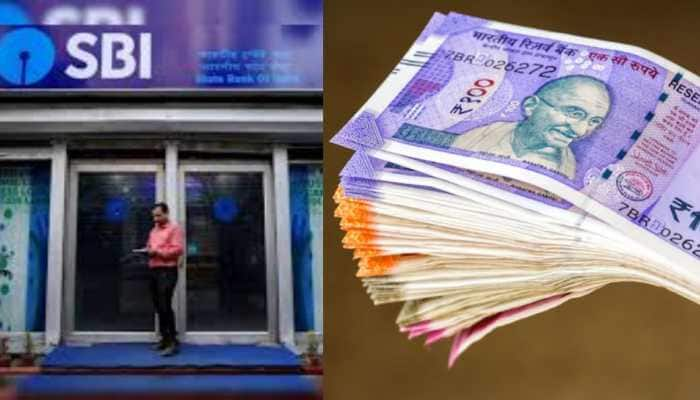1984 anti-Sikh riots: An endless wait for justice
It seems violence and strife have become a part of our being.
Trending Photos
)
India has seen bloodshed time and again. If our independence from the British rule saw the butchering of Hindus, Sikhs and Muslims as part of the partition of India, then the years that have followed have not been peaceful either. It almost seems that violence and strife have become a part of our being.
If bomb blasts and attacks on our territory can at times be explained by the fact that these may have been sponsored by an enemy state, it is very difficult to accept and understand, at least to the rational mind, when your own countrymen kill each other. And that is why riots like the 1984 anti-Sikh riots, 1992 Mumbai riots and the 2002 post-Godhra riots in Gujarat make you sad when you delve into the issue. The psyche of a rioter or the feeling of vengeance or the concept of mob fury can be understood from the academic point of view but it can never be accepted from the rational point of view. Why can’t those who kill in the name of retribution understand a simple fact – why kill and punish innocents for the deeds done by someone else?
It would tear apart any person who is humane to see what the riot victims have gone through and suffered. But what makes it worse is the endless wait for justice by the families of those who have died in the mindless violence perpetrated by one of their own. And this is precisely what the victims of the 1984 anti-Sikh riots, which were unleashed after the assassination of former prime minister Indira Gandhi on October 31, 1984 and in which more than 3000 people were killed, have had to go through – endless wait for justice.
Accusations were levelled against various Congress leaders like HKL Bhagat, Sajjan Kumar and Jagdish Tylter for inciting mobs to kill the Sikhs in revenge as Indira Gandhi was killed by a member of their community. In fact, Indira’s son Rajiv Gandhi, who became the PM after her, is said to have been guilty of not calling in the Army for two days inspite of repeated requests from several quarters. He is also attributed to have made the infamous statement at a Boat Club rally 19 days after the assassination of Indira Gandhi: “Some riots took place in the country following the murder of Indiraji. We know the people were very angry and for a few days it seemed that India had been shaken. But, when a mighty tree falls, it is only natural that the earth around it does shake a little.”
However, the fact is that it has been more than twenty-eight years and the families of those who died in the riots have yet to get a sense of legal closure. For precisely this reason, the recent order by a Delhi court setting aside a CBI closure report clearing Jagdish Tytler in a riots case and ordering further investigation against him must have come like a beacon of hope for those who have waited for years to get justice. Tytler may or may not have been guilty of inciting the mob to kill three Sikh men in a North Delhi Gurdwara – that is for the court to decide and Tytler saying that he had no role to play in the horrific bloodshed has no meaning – but the fact is that the judgement by the Delhi court is a setback for the Central Bureau of investigation and if one can say it, an indictment of sorts.
In fact in 2007 too, the CBI had filed a closure report but the magistrate court had ordered re-investigation into the case. Subsequently, the CBI had recorded statements of two witnesses in New York and in 2009 it had given Tytler a clean chit, following which the court had accepted the closure report. However, the Sessions Court on April 10, 2013 by reopening of investigation has given a ray of hope to many who have been fighting a long and lonely battle.
The court, acting on riot victims` plea, has directed the CBI to examine eyewitnesses and people who say that that they have information about the riots. It has been alleged that the CBI has been selective in whose statements they wanted to record. It is on record that the CBI considered some of the witnesses as being planted and fake and did not even record their statements. However, the pertinent question is about how the premier investigation agency of the country can decide to do so? The Karkardooma court did make an observation to this effect – “CBI did not have the right to have not recorded the witnesses’ statements and thus, to have prevented the court from forming its own opinion regarding the reliability of these witnesses.”
Yes, securing justice for the riot victims can at times be tough because of the involvement of mob, but in no way the perception should go out to the common masses that those who are in-charge of getting justice for them are involved in a cover-up. If one may say, that is a crime in itself.
While the court order has come as a blow for Jagdish Tytler, the Congress party too has a lot to answer. Political parties cannot have double standards on riots or for that matter on any such violence. They also cannot use the platform for petty political gains. They have to remember first and foremost that real people have suffered real tragedies and not vote banks.
For exactly this reason, if the Congress goes hammer and tongs against Narendra Modi for asking the administration to go slow in the riots that followed the burning of a train coach in Godhra in which 59 people mostly kar sevaks died, then it has to be seen to be acting against its own too. The Congress has to answer whether pressure was put on the CBI to do a shoddy job of investigating the 1984 riots. Remember a former CBI director, Ashwini Kumar, who gave Tytler a clean chit, was recently made the Governor of Nagaland. One is not casting aspersions but then shouldn’t ‘Caesar`s wife be above suspicion’.
The Congress also has to answer as to why HKL Bhagat and Jagdish Tytler were persisted with and made union ministers after there was a perception about them of leading and urging the mobs to kill people. Agreed, no court had held them guilty but then isn’t politics as much about perception as about reality.
Post Script: The Congress would do well to remember that no court has indicted the Gujarat Chief Minister Narendra Modi for the 2002 riots. So, by that yardstick they should stop calling him ‘Maut ka Saudagar’ and ‘Yamraj’. In fact, many would argue that in the case of Gujarat riots, many have been found to be guilty and have been handed down severe punishments by the court, unlike the 1984 riots. Until that happens in the 1984 anti-Sikh riots case too, there would be no healing of the scars for the sufferers of one of the most horrific and senseless cases of violence that India has ever seen.
Stay informed on all the latest news, real-time breaking news updates, and follow all the important headlines in india news and world News on Zee News.
Advertisement
Live Tv
Advertisement







)
)
)
)
)
)
)
)
)
)
